
For five days in July, 1999, America was on the edge of its seat -- and on the fifth day, the nation's heart broke.
On July 16, John F. Kennedy Jr., his wife Carolyn Bessette-Kennedy and her sister Lauren Bessette had taken flight from New Jersey in Kennedy's small Piper Saratoga plane en route to Massachusetts for his cousin Rory's wedding -- and seemed to have disappeared into thin air.
On July 21, the worst fears of Americans and Kennedy fans around the globe were realized. The three bodies were retrieved by U.S. Navy divers from the broken plane on the bottom of the Atlantic Ocean.
“It was earth-shattering,” Kennedy's personal assistant and ABC News consultant RoseMarie Terenzio said. “It was unbelievable. It was as [if] the earth had cracked in half somehow. And I could not understand how this could happen. To him of all people.”
The tragic plane crash brought an all-too-soon end to a remarkable public life that began playing out when Kennedy was only a small child.
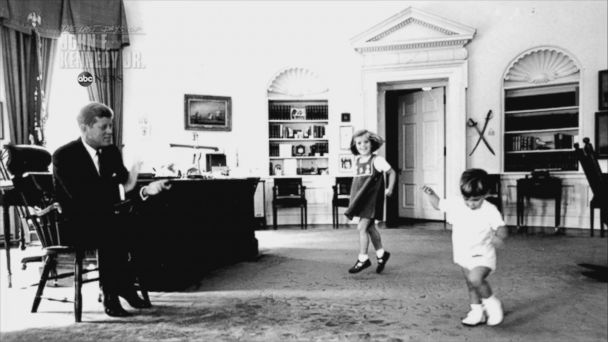
JFK's children at the White House: John Jr. was 'the apple of his eye'
Three-year-old John F. Kennedy Jr.'s heartbreaking and iconic salute to his murdered father, President John F. Kennedy, on Nov. 25, 1963 is seared into the nation's collective memory. From that day forward, Kennedy became something of a living national treasure.
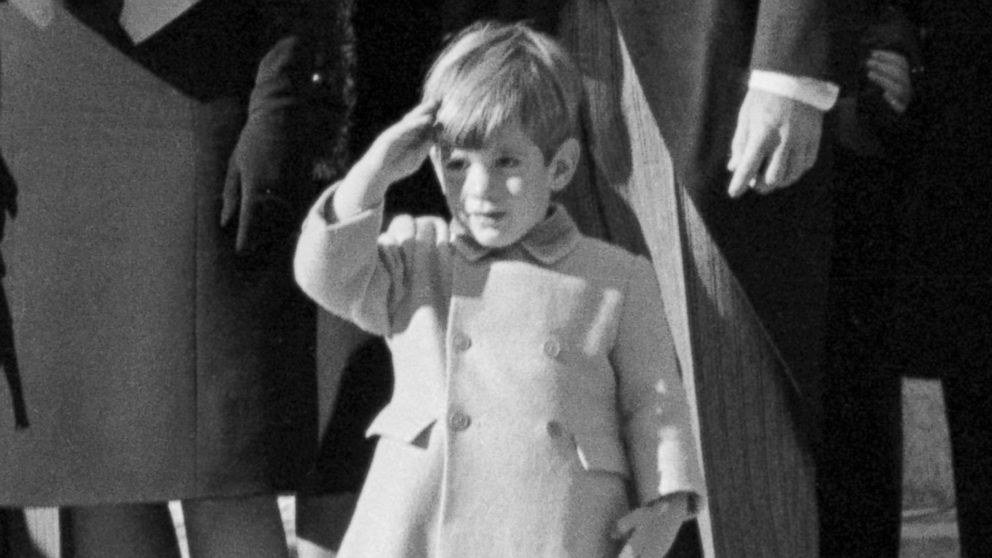
“That is the moment when John Kennedy [Jr.] became who he was,” said Paul Wilmot, who knew him.
The life of John F. Kennedy Jr.
Five years later, Kennedy's uncle Robert F. Kennedy was assassinated during his 1968 run for president.
These events deeply shaped Kennedy as a young man and to some degree defined his approach to life as the one of the most famous people in the Kennedy family.
It was as (if) the earth had cracked in half somehow. And I could not understand how this could happen. To him of all.
“You can't really imagine what it would do to a young person to have both his father and his uncle murdered in the same way,” Kennedy biographer J. Randy Taraborrelli said.
“For John, I think that it made him feel that you can't waste you know, a moment… because he didn’t know how long he was going to be here.”
Despite his legendary family, he learned to navigate everyday life humbly -– often making choices that seemed against the grain of the Kennedy way.
Christopher Andersen, author of "The Day John Died," suggested that it was because “he wanted to not have a constant reminder of who he was. I can imagine the monumental burden of expectation on this guy’s shoulders throughout his entire life.”
The teenage Kennedy that Sasha Chermayeff met during high school was “a normal kid with like scruffy hair … He was very friendly. He wasn’t cold or in any way exclusive. He was very expansive. He wanted to know everything about you.”
Kennedy’s former fraternity brother at Brown University Richard Wiese explained that Kennedy “liked to be treated like everyone else and he didn’t mind being the butt of a joke."
"In some respects, I found the most remarkable thing about John was how relatively normal he was despite his fame.”
Striving to find a path truly his own would be theme throughout his life. One of the first of many unexpected decisions he made was not to attend Harvard, the alma mater of both his father and father’s father.
“John chose Brown University because he didn't want to be in his father's shadow...” Andersen said.
He used to bicycle to work every day. And, you know, don't you just love the image of John Kennedy Jr. on his bicycle, free as a bird … This is a beautiful image of someone who lives in a cage, finding a way to escape.
While studying there, roommate Chris Oberbeck said he took up another unanticipated hobby.
“He was interested in theater… most importantly he was a natural at theater and he was incredibly talented,” Oberbeck said.
ndersen said the stage was something he very much wanted to pursue.
“There was even talk… of him acting in a film.”
According to JFK biographer Christopher Andersen, while Jackie did attend her son's performances in college, “she did not think this was the life for him."
“She thought he was destined for greater things. She felt it was beneath him… What she wanted for John was the traditional path into politics, which was through the law,” he added.
Kennedy entered law school at New York University in 1986, and went on to work at the Manhattan District Attorney’s office.
“I think a part of him always missed the theater,” former girlfriend Christina Haag said. “He loved it but I think … he knew that his path was going to be elsewhere.”
Michael Rodi, a defense attorney who faced Kennedy in court, said it was understood “John could have gone to any law firm he wanted… His family has connections all over.”
John was a man in motion.
“And yet he went to the district attorney’s office,” Rodi said. “So he did have a sense of public service.”
Michael Gross, a former contributor to Kennedy’s magazine “George,” said this job “provided access to real life.”
“He used to bicycle to work every day,” he said. “And, you know, don't you just love the image of John Kennedy Jr. on his bicycle, free as a bird … This is a beautiful image of someone who lives in a cage, finding a way to escape.”
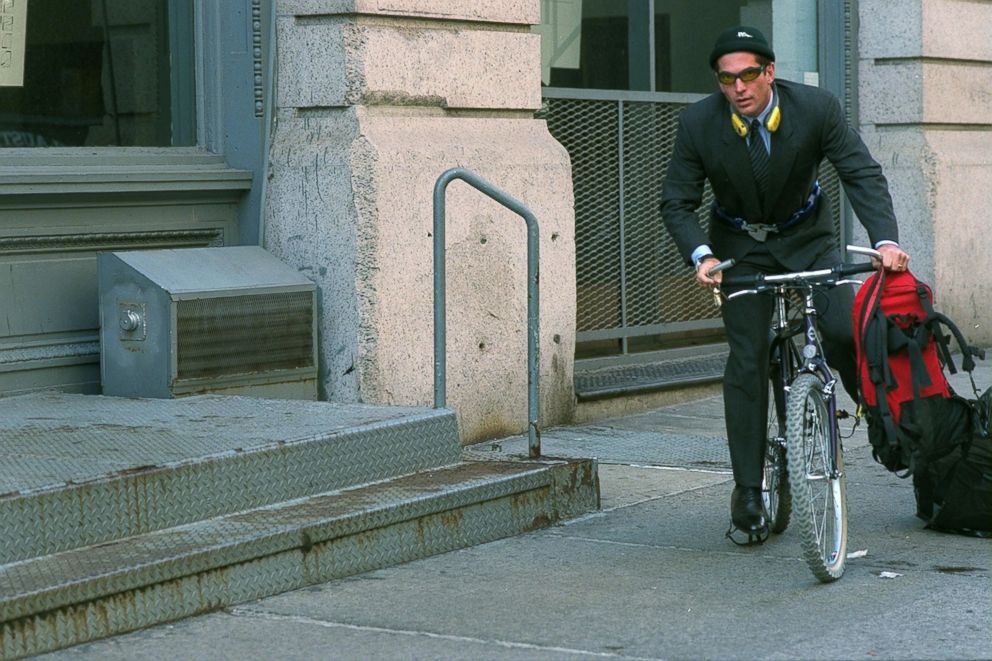
Even as Kennedy was humbly working beside his colleagues at the district attorney’s office, the son of one of America’s most famous families seemed to also be breaking hearts on the courtroom floor.
“He appeared before a judge in Brooklyn, I think," Gross said. "And the judge actually had to say to his stenographer in the courtroom, 'Try not to drool.'"
In 1988, “People” magazine famously dubbed Kennedy the “Sexiest Man Alive". Thirty years later, it remains the best-selling Sexiest Man cover in the magazine’s history, according to former managing editor Larry Hackett.
People magazine's 'sexiest man alive' through the years
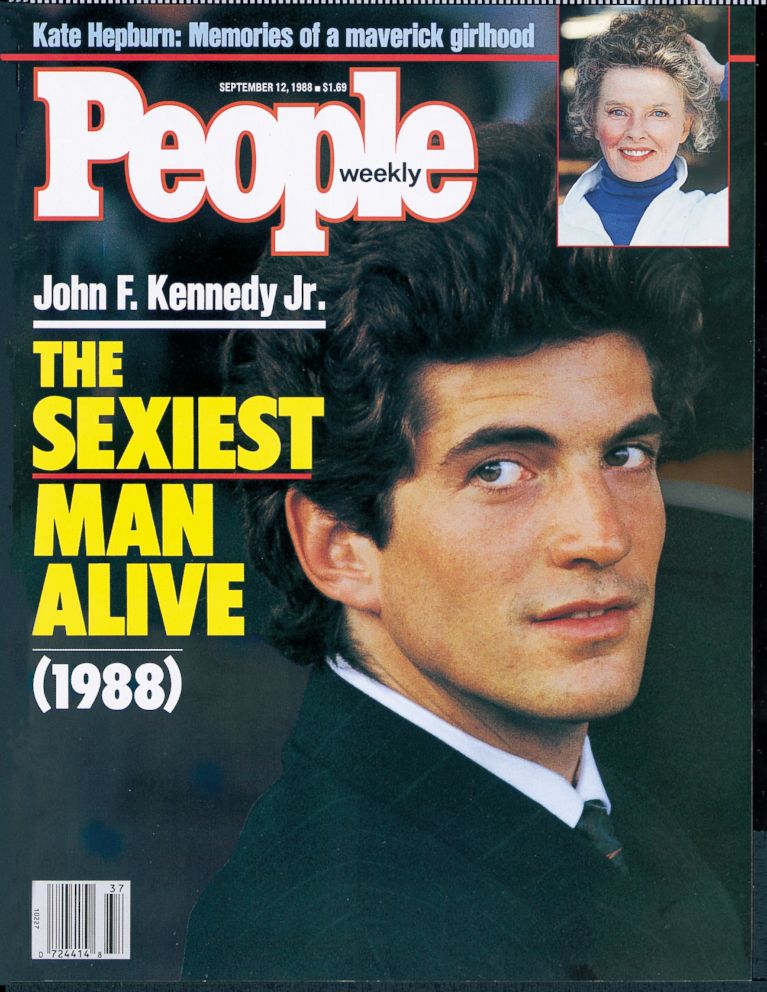
“Myself included… friends gave him total crap [about it],” Wiese, the former Brown fraternity brother, joked.
“I’m like, ‘John, does that mean like, sexiest ever in the history?’ I mean we just went on and on and on... you know, being the sexiest man alive was embarrassing to him to some degree.”
In a 1995 ABC interview with Barbara Walters, Kennedy seemed to shrug off the title.
“People can say a lot worse things about you, right? That you were attractive and you look good in a bathing suit.”
John’s famous family, along with his movie-star looks, charm and his down-to-earth qualities, made him a veritable heartthrob for girls everywhere –- though he wouldn’t date just anyone.
“I think John always was attracted to women who were a little challenging to him,” Wiese said. “The worst thing, as a woman, you could have been, was to yes him to death.”
Richard Johnson, a pop culture reporter at the time, said he “dated a lot of different women and not one of them has ever said anything negative about him… probably they were just happy that they had a chance to know him.”
Haag, who dated him during his time at New York University (NYU) Law School, remembered the unassuming way they fell for each other.
“In the winter of 1985, we did a play and it's about a teenage couple who fall in love … and we fell in love doing the play,” she said.
Kennedy also famously dated Sarah Jessica Parker, Madonna, and actress Daryl Hannah.
I think John always was attracted to women who were a little challenging to him. The worst thing, as a woman, you could have been, was to yes him to death.
Taraborrelli said he “always wanted to find somebody…in the same way that his father found Jackie.”
He finally appeared to have found that woman when he met Bessette -- serendipitously -- in a Calvin Klein store in 1992.
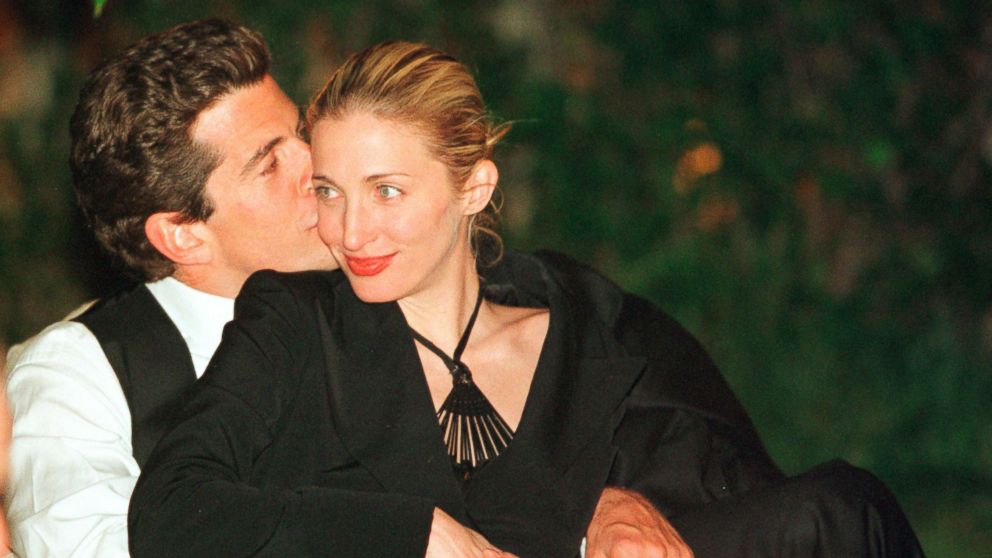
They started dating two years later, and were married in 1996 in a secret ceremony.
“He was very, very much in love with this beautiful girl… who was unknown to the rest of the world,” said Wilmot, a former executive at Calvin Klein.
Terenzio described her as “very independent –- a strong woman.”
“I think he loved that," she said. "She could be his friend, she could listen to his secrets and not judge him. I think that that was rare for John, to be that comfortable doing that with someone.”
The handsome couple were in the spotlight for their entire relationship. According to his assistant Terenzio, they dated briefly in 1993 then reunited later when yet another tragedy struck the Kennedy family.
In 1994, America learned that Jackie Kennedy Onassis had been diagnosed with non-Hodgkin's lymphoma. She died that May.
“I spent the weekend with him after that funeral,” Chermayeff said of Kennedy.
“It was very, very painful for him. His head in his hands on the kitchen table saying ‘I just really didn’t want her to die.’ You lose both of your parents and that’s… the beginning of this new phase where you see your own mortality.”
After her passing, Kennedy did his best to live up to her advice of forging his own path.
In the ABC interview with Barbara Walters, JFK Jr. talked of how his mother raised him and his sister -- that “She'd always encouraged both Caroline and I to make our own way, to not… subordinate our own lives to the expectations of what we should do with our lives.”
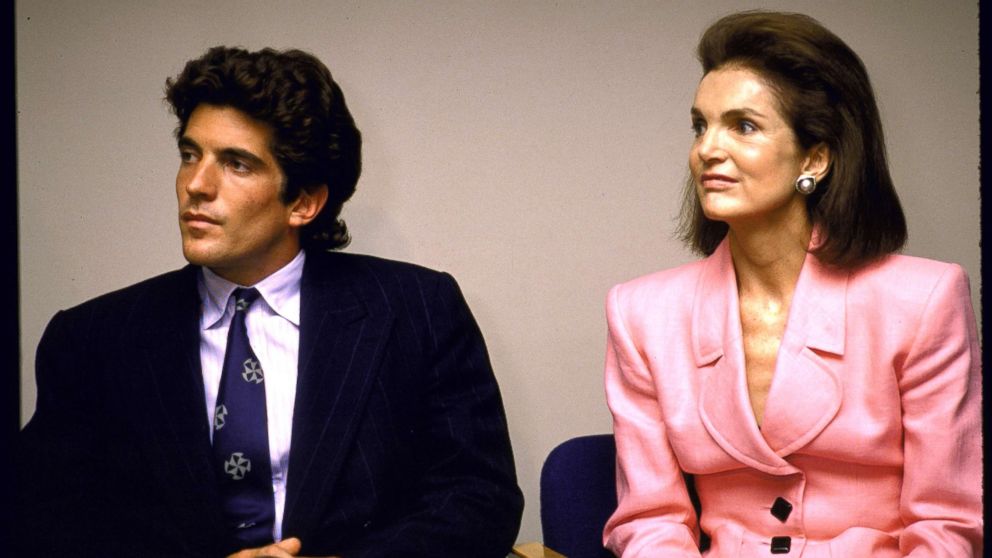
He said his greatest fear “would be to be faint of heart and … feel that I missed an opportunity or … could have taken a path less traveled that would, had ended into something completely wonderful and unexpected.”
That fear of missing out played into what Andersen said was “an adventurous streak.”
“John was a man in motion," he said. "In New York, you would, you would see him all the time, bicycling, running through the park, playing football, kayaking.”
“Once he said ‘I do that because, if I ever stopped and thought about all of the things that have happened to me, I would just sit down and fall apart.’” Andersen continued.
The biographer recounted that in 1999, Kennedy was under “tremendous pressure and stress" to keep his magazine "George" afloat and his marriage intact.
“John had his own unique way of handling stress, and sometimes it involved taking physical risks.”
Andersen said that that year “John actually asked the Park Rangers if he could rappel down the face of Mount Rushmore. I mean that was the kind of risks he liked to take.”
Terenzio laughed as she remembered: “The park ranger said, ‘No, you can't do that, actually.’”
Another biographer Laurence Leamer said Kennedy enjoyed those risks.
“I mean crazy risks… It was a way of relieving stress. It was just exciting to him, the danger. He just couldn't get enough of it.”
Andersen said Kennedy’s friends called him “the Master of Disaster.”
“Here was a guy who would get in his kayak and play chicken with the Staten Island Ferry,” Andersen said. “He would, you know, swim out toward the horizon and vanish, and his friends would just get ready to call 911, and suddenly he appeared out of nowhere. Somehow he always managed to show up, safe and sound.”
One of his favorite hobbies was certainly a dangerous one.
“Flying meant more to him than anything," he said. "It meant freedom.”
“Here you have one of the most pursued, hunted men in the world," he added. "And ironically, the only place he felt he could be truly free was in the air."
His late mother didn’t want him to fly.
“One of the reasons for that was the horrible track record the Kennedys had with flying," Andersen said. "John’s uncle Joe was killed in a plane crash, his aunt Kathleen was killed in a plane crash, his aunt Ethel’s parents were killed in a plane crash and her brother was killed in a separate plane crash -- and of course, Teddy Kennedy was almost killed in a very serious plane crash."
Jackie Kennedy Onassis biographer Tina Flaherty said the younger Kennedy didn’t reveal to his mom that he was taking flying lessons for a long time -– and when he finally did, she said “’I want you to promise me that you’ll stop immediately.’ And he did stop.” But he took up lessons again after his mother passed away.
Flying played a special role in his marriage to Carolyn –- though Andersen said she hated it at first.
“She was very reluctant to fly with John in the beginning,” he said. “She complained constantly about it.”
But she did ultimately enjoy her time in the air with her husband, according to biographer Taraborrelli.
“That’s the only time they were ever alone. It was so rare that it was just the two of them that being up there in the clouds with John began to become something that Carolyn Bessette actually liked.”
On July 16, 1999 Kennedy, his wife and sister-in-law left from New Jersey in his Piper Saratoga plane, on his way to his cousin Rory Kennedy’s wedding in Hyannis, Massachusetts.
“When John got in his car to leave, he thought the flying conditions would be fine,” Andersen said. “But in fact it wasn't. There was a haze developing… he was going to be flying solo. His… instructor he usually went with couldn’t be there.”
“These conditions were not reported by the FAA,” he added, referring to the Federal Aviation Administration.
“John checked on the weather reports they said everything was fine, everything was clear.”
JFK Jr. was flying though those hazy conditions would likely not have allowed him to orient himself visually, a private pilot who knew Kennedy Bob Arnot said.
Hours later, Kennedy’s assistant Terenzio and his wife’s best friend Carole Radziwill frantically got on a phone call together.
“I said ‘Carole, it’s Rose what’s going on?’ And she said, ‘They haven’t landed, they’re not here. Something’s wrong,” Terenzio said. “I said ‘no nothing’s wrong, what do you mean they haven’t landed?’”
Radziwill said that by 2 a.m., “there was nothing left to do.”
“I called the Coast Guard.”
Terenzio received a heartbreaking phone call from Kennedy’s cousin Bobby.
“He said, ‘RoseMarie, John’s not coming back’. And I think it just sort of hit me… then that -- this was it.”




